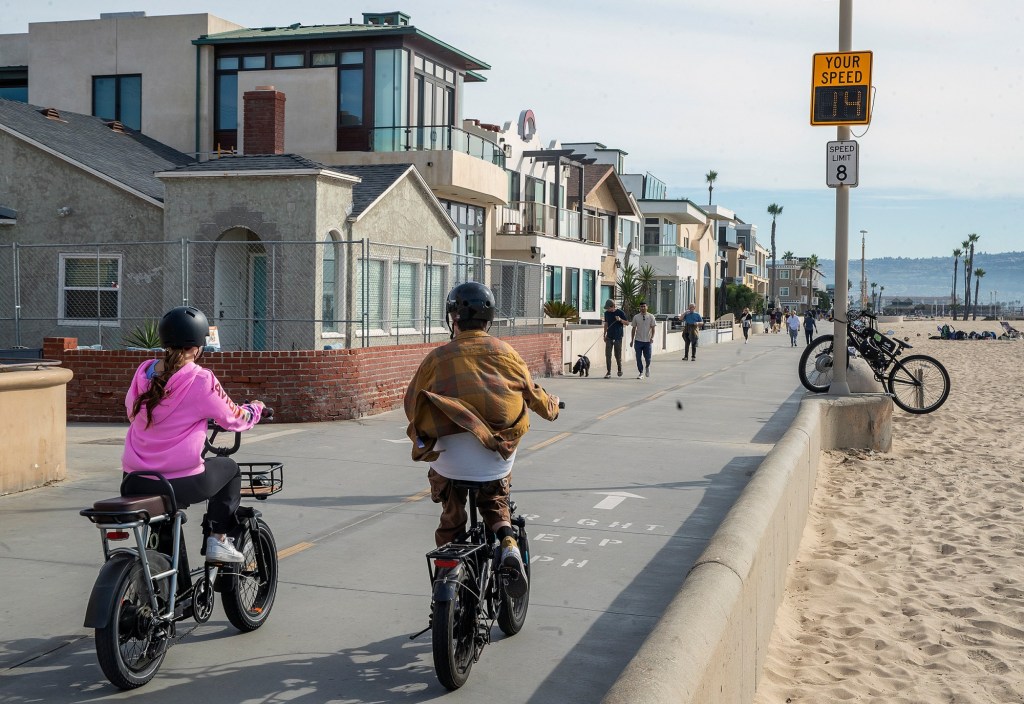A former Pedal Ahead manager makes the allegations in claims filed this week with SANDAG and the state air resources board.
To say this is a complex story is an understatement, and the article does a fairly reasonable job at unpacking the details. That said, I’m disappointed they did not include a PDF to the filed claim, since even a cursory analysis of the claims relies heavily on the details therein.
For reference, in California and other states, lawsuits against the state itself, or the counties, cities, agencies, special districts, or anything else that came into existence by the law, must have first filed a claim with the entity being sued. The California Tort Claims Act requires this procedure in order to relieve the state’s inherent sovereign immunity and also permit the courts – which are also an arm of the state – to have jurisdiction.
Focusing on the relevant facts to the claim, the claimant (the former Pedal Ahead manager) states:
- Pedal Ahead is a non-profit, distinct from Pedal Ahead Plus, a for-profit company
- Pedal Ahead was contracted by San Diego Assoc of Govts (SANDAG) and CA Air Resources Board (CARB) to operate an ebike program
- The claimant was hired in 2022 to work on this ebike program
- The claimant did not receive paychecks after April 2023
Accordingly, the claimant brings back-pay claims against SANDAG (for $40k) and CARB (for $58k), based on the premise that he was working on behalf of those two state entities. Presumably, the claim argues that he was unlawfully terminated for whistleblowing, but the article doesn’t specifically say this and we don’t have the PDF of the claim itself.
This is… an uphill battle, IMO. Not the whistleblowing part, but the part where he wants money from those two entities. The state action doctrine distinguishes between things done by – or instructed by – state employees and representatives, versus things done by private entities and their employees. In a lot of ways, this mirrors the distinction between hiring W-2 employees versus 1099 contractors.
If he were directly on the CARB or SANDAG payroll, this would be a slam dunk. But he ostensibly only had employment with the non profit. This means the scope any state action claim will depend heavily on the text of the contracts with CARB/SANDAG. Generally, the narrower and more specific the contract, the less it would be the state’s responsibility to pay up. That said, the contract can’t be hiring the nonprofit to do something which CARB or SANDAG normally couldn’t do on its own.
As with most things in civil law, it’s a careful balance to apportion liability onto the entity which is best positioned to avoid the problem. Would making CARB/SANDAG pay $100k – and thus letting Pedal Ahead off the hook for $100k – address the problem of constructively firing someone who noticed malfeasance? That’s left as an exercise to the reader.
What often happens in civil litigation is the “shotgun” approach: aim the lawsuit at as many people and entities as possible, especially ones with deep pocket, hoping some will settle. So it’s possible the claimant will later file suit against all of Pedal Ahead, its owner personally, every individual mentioned personally, plus SANDAG and CARB.
California allows for joint and several liability of money claims, so if a court/jury finds that CARB or SANDAG were even 1% partially responsible, then 100% of the winnings can be extracted from their deep pockets. This is especially relevant if the entity with the most responsibility – possibly Pedal Ahead – is broke or is about to go bankrupt. Joint and several liability prioritizes claimants getting compensated, even though the most responsible party escapes via bankruptcy. Again, civil law is a balance.
What’s truly staggering is the degree of corruption alleged, which is only ancillary to the tort claim, but it suggests that there are villains everywhere. No one comes out looking good here, whether its SANDAG and its other scandal, the owner of the nonprofit and his other ventures, the ebike program itself (why have a hard goal of 100 miles per week?), the former San Diego County Supervisor who helped award the contracts and then resigned after a sexual assault scandal, and the state entities for not properly auditing Pedal Ahead and still paying out the contracts.
All the meanwhile, $30 million of the $31 million dedicated for ebikes remains unused, likely to the disappointment of lots of San Diegans who are eager to take up ebikes or participate in a pilot program. That’s the real travesty amongst all this.


